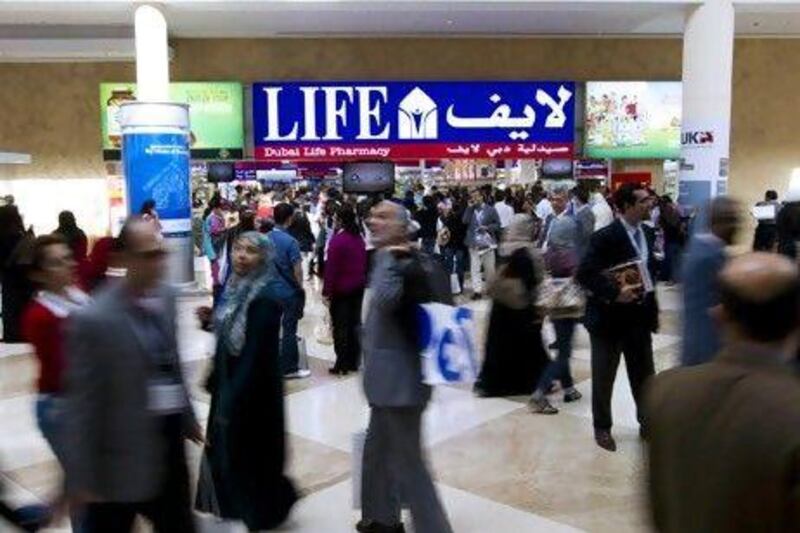Popcorn, penguins and an elephant in a dentist's chair; the Arab Health conference in Dubai this week had it all.
As thousands of companies compete to lure potential buyers, many are trying to stand out from the crowd.
One small business owner at the annual event, which winds down today, was busy popping popcorn to lure visitors by their noses, while the healthcare division of a multinational conglomerate had a coffee bar in its huge booth to help fuel big-spenders.
Biswal Trading from Bell Village, Mauritius, had an advantage with its showpiece product - a slick rescue ambulance motorbike with a helmet that includes hands-free Bluetooth for connecting mobile phone calls.
Uzumcu, a medical equipment company, got plenty of stares for displaying a giant stuffed elephant on a reclining dentist office chair. But it had some competition from Kaltis International, which exhibited a large plush penguin on a cryogenic freezer that dips to minus 150C to keep samples of blood and stem cells cool to the core.
"I think people notice it," said one employee at Kaltis when asked whether the penguin seems to have increased foot traffic.
These sorts of antics - whether ultimately successful or not - are all part of an attempt to pull in visitors and hopefully, buyers. Last year, 4,000 major purchasers splashed out an average of US$5 million (Dh18.36m) for different medical services and products, according to executives at Informa Exhibitions, which puts on Arab Health.
Tens of thousands of additional buyers also attended the show, presumably with chequebooks to tote.
But suppliers are not just interested in boosting business. They also need to recoup basic investments for participating in a show where thousands of dollars get spent on renting booths then paying for setup, accommodation and shipping items - such as elephants and penguins - back home.
A spokeswoman for Informa would not disclose exactly how much it costs to rent out booth space, although some exhibitors revealed fees included $8,000 for a 9 square metre space.
One of the largest stands in the main concourse corridor cost one medical company a full $30,000 fee for the four-day show.
Nearby, a booth for the Saudi German Hospitals Group featured plenty of glossy posters and a large white model of a hospital, complete with intricate details such as a red rescue helicopter.
"When we started [appearing at Arab Health] seven years ago ... it was very cheap," said Sobhi Batterjee, the president and chief executive of Saudi German Hospitals Group, which is set to formally open a new healthcare facility in Dubai this year.
But he said nowadays prime space commanded premium prices.
The hospital group has 60 other booths to compete with across the concourse this year, plus another unlikely suspect: Life, a pharmacy outlet built into the exhibition hall that managed to draw lines of people more than dozen people by advertising wheelchairs at 50 per cent off, as well as offering free blood glucose monitors.
The UK's section included countless images of the Union Jack stamped on multiple booths. China's area included a room with a spread of fruits, baked goods and fresh flowers. Meanwhile, at a restaurant on the 33rd floor of the Trade Centre Tower, delegates from Canada mingled with Sam Hamad, the minister of economic development, innovation and trade for Quebec. His tip for exhibitors? Get out and network.





